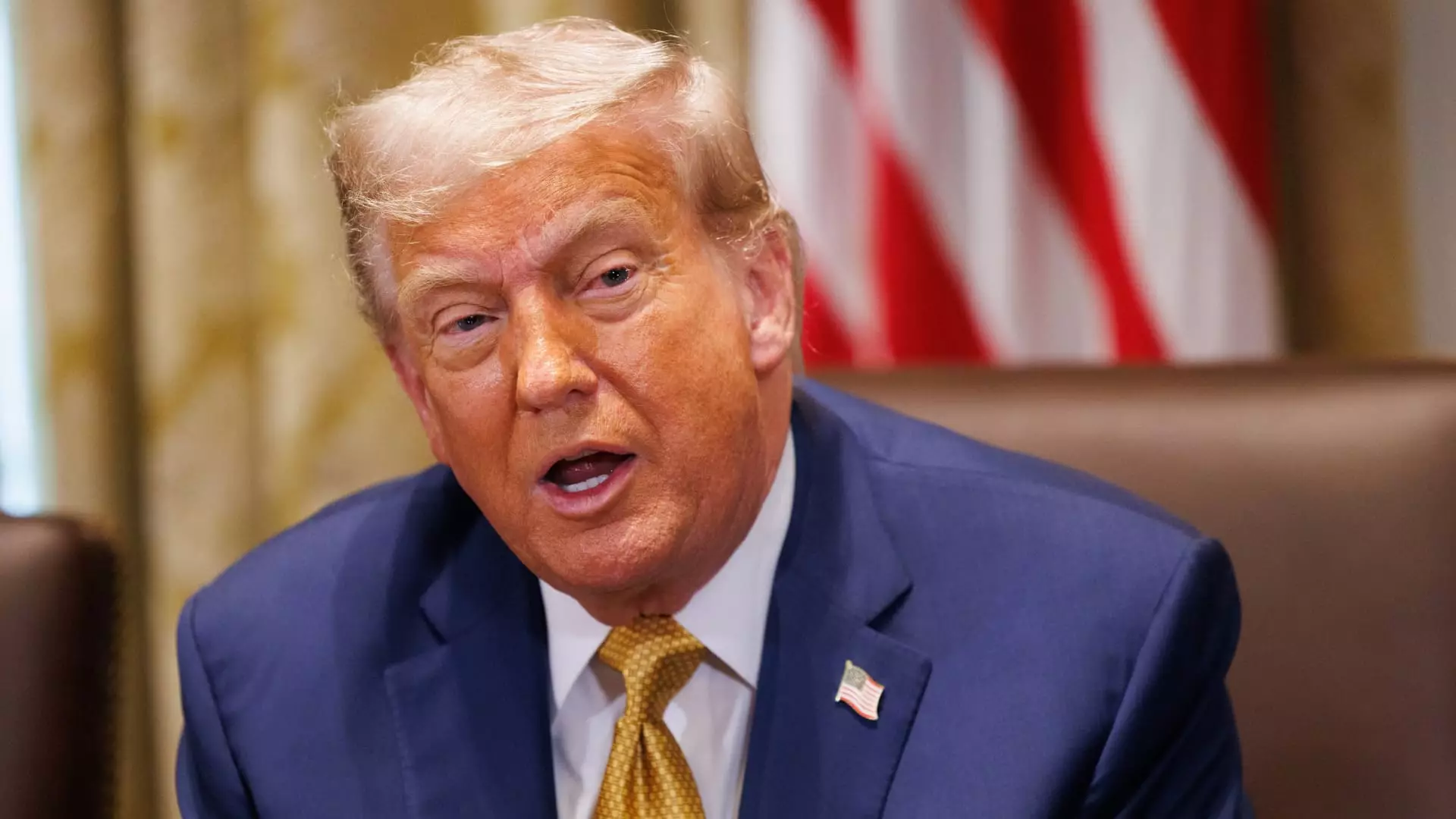Recently, President Donald Trump has signaled a drastic shift in his approach to global trade, announcing a potential move to impose tariffs of up to 200% on imported pharmaceuticals. This development is more than just a policy tweak; it reflects a combative stance towards international supply chains, which many see as a bold attempt to reshape the American manufacturing landscape. Yet, beneath the surface, this threat raises critical questions about economic prudence, industry stability, and national security.
While Trump has often used tariff threats as leverage or bargaining chips, recent statements suggest a serious intent to implement these punitive measures, albeit with a delayed timeline—potentially a year or more. Such an extensive tariff could dramatically alter pharmaceutical costs domestically, disrupt global supply chains, and trigger ripples across healthcare and economic sectors. The administration’s posture seems rooted in a desire to incentivize drug manufacturing to return to the U.S., promising job creation and supply chain sovereignty. However, the cost might be far higher than assumed.
Risks Hidden Behind the Political Fortress
Imposing tariffs at such a scale on pharmaceuticals—goods that are vital for public health—could turn into a double-edged sword. Advocates argue that high tariffs will pressure drug companies to relocate production to the United States, thus bolstering domestic jobs and reducing reliance on foreign suppliers. Yet, industry experts and stakeholders warn that such a move risks unintended consequences, including soaring drug prices, supply shortages, and diminished innovation.
The industry’s response highlights a critical flaw in the strategy: tariffs increase the cost of imported medications, which could trickle down to American consumers. Additionally, companies already investing heavily in the U.S. might face minimal impact, but smaller players and newer entrants could be crushed under the weight of higher tariffs. The cost of R&D, which relies heavily on international supply chains for raw materials and components, could skyrocket as a result.
Moreover, the practicality of these tariffs remains uncertain—Trump’s previous threats often resulted in vague timelines, leaving markets in limbo. The pharmaceutical industry, a vital component of America’s competitiveness and health security, could find itself caught between a desire to protect American manufacturing and the realities of global science and commerce.
Political Motivations Versus Economic Logic
From a center-right liberal perspective, Trump’s tariff proposal reeks of political opportunism that underestimates the complexity of the pharmaceutical landscape. While the notion of revitalizing domestic manufacturing is appealing, the method—tariffs at unprecedented levels—may do more harm than good.
Incentivizing reshoring production may sound promising, but it ignores the necessity of global collaboration in drug development, quality standards, and innovation. High tariffs risk alienating trading partners, provoking retaliation, and ultimately harming the very industry Trump claims to support. The industry’s pushback, emphasizing that tariffs could choke investments and spike drug prices, is a pragmatic reminder that economic health depends on balanced policies—not punitive measures.
Furthermore, the move raises fundamental questions about the federal government’s role in regulating medicine costs and industry development. The reliance on tariffs as a tool to “correct” supply chain issues reveals a potentially shortsighted approach that prioritizes political messaging over nuanced economic strategies. Instead of viewing corporate relocation as a straightforward solution, policymakers should focus on fostering innovation-friendly environments, maintaining open trade, and ensuring regulatory reforms that encourage domestic growth without collateral damage.
The Broader Implications for America’s Future
This debate underscores a tension at the heart of America’s economic strategy: should the nation lean on protectionism to foster a resilient pharmaceutical industry, or embrace open markets and global cooperation for sustained innovation? Trump’s tariff threats lean toward the former, but history suggests that such protectionist measures can backfire, leading to higher prices and less flexibility in crisis responses.
A measured approach—supporting strategic investments in domestic manufacturing, safeguarding intellectual property, and streamlining regulations—may be more effective than aggressive tariffs. The pharmaceutical industry, crucial for national security and public health, benefits from a balanced policy that promotes growth while managing supply risks.
In the end, the political impulse to use tariffs as a shield against foreign competition might appease some domestic constituents, but it risks undermining America’s long-term competitive edge. Sound economic policy must recognize the power of innovation, free trade, and technological leadership—principles that no tariff, however high, can substitute for.

